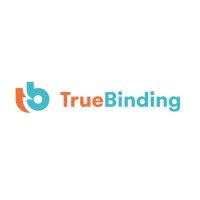预约演示
更新于:2026-01-17
IMT-001
更新于:2026-01-17
概要
基本信息
药物类型 单克隆抗体 |
别名 Gal-3-TIM-3 checkpoint inhibitor (Immutics)、IMT-001 |
作用方式 抑制剂 |
作用机制 galectin-3抑制剂(半乳糖凝集素3抑制剂) |
在研适应症- |
非在研适应症 |
原研机构 |
在研机构- |
非在研机构 |
权益机构- |
最高研发阶段终止临床前 |
首次获批日期- |
最高研发阶段(中国)- |
特殊审评- |
关联
100 项与 IMT-001 相关的临床结果
登录后查看更多信息
100 项与 IMT-001 相关的转化医学
登录后查看更多信息
100 项与 IMT-001 相关的专利(医药)
登录后查看更多信息
2
项与 IMT-001 相关的新闻(医药)2023-04-30
BOSTON, April 28, 2023 (GLOBE NEWSWIRE) -- Galecto, Inc. (NASDAQ: GLTO), a clinical-stage biotechnology company and world leader in galectin biology focused on the development of novel treatments for fibrosis and cancer, today announced its operating and financial results for the quarter ended March 31, 2023.
“Galecto continued to make strong progress with its clinical programs in the first quarter of 2023 and remains on target for several significant milestones this year. We reported exciting preliminary data from our clinical trials that are evaluating our oral galectin-3 inhibitor GB1211 plus atezolizumab for the first-line treatment of non-small cell lung cancer and our LOXL2 inhibitor GB2064 for the treatment of myelofibrosis, which further deepen our confidence in the potential of our pipeline,” said Hans Schambye, President and Chief Executive Officer of Galecto. “The Galecto team is delivering on development plans for our novel therapies, and we continue to expect top-line results from our Phase 2b GALACTIC-1 trial of our lead product GB0139 in idiopathic pulmonary fibrosis this August.”
First Quarter and Other Recent Highlights
Reported partial response in two patients in the open-label portion (Part A) of the Phase 1b/2a GALLANT-1 trial evaluating GB1211 in combination with atezolizumab for the treatment of non-small cell lung cancer (NSCLC). A partial response is defined by RECIST criteria to be shrinkage of at least 30% of the tumor. One of these patients has been treated with GB1211 200 mg twice daily for 23 weeks, while the other has been treated with GB1211 100 mg twice daily for 14 weeks, and both patients continue to receive active treatment in the trial. Recruitment in Part A of this trial is currently ongoing.
Reported data from three additional evaluable myelofibrosis patients in the Phase 2a MYLOX-1 trial with GB2064 for the treatment of myelofibrosis that showed one patient experienced a 1-grade reduction in reticulin fibrosis at nine months and, following an initial increase of collagen fibrosis score of 1 grade at six months, experienced a 1-grade reduction of collagen fibrosis at nine months. In the third quarter of 2022, Galecto announced that four of five evaluable myelofibrosis patients in an intermediate assessment experienced a ≥ 1-grade reduction in collagen fibrosis of the bone marrow, an improvement suggesting that GB2064 could impact the progression of the disease and potentially be disease modifying. Because the trial has exceeded the pre-defined target of a ≥ 1 grade reduction in collagen fibrosis in at least three out of 16 evaluable patients, Galecto believes that MYLOX-1 has reached the dual goal of confirming LOXL2 as an attractive fibrosis target and demonstrating that GB2064 has clinically meaningful antifibrotic activity. Accordingly, Galecto has determined to stop enrolling additional patients in the trial and will continue following the remaining patients.
Presented two posters at the American Association for Cancer Research (AACR) Annual Meeting 2023 showing anti-cancer activity in both our galectin-1 specific inhibitor and our dual acting galectin-1/3 inhibitor compounds, which could provide potential new cancer therapies.
Expected Upcoming Milestones
Top-line results from Phase 2b GALACTIC-1 trial (IPF) with GB0139 in August 2023
Top-line results from Phase 2a MYLOX-1 trial (myelofibrosis) with GB2064 in 2H 2023
Interim safety data from Phase 2a GALLANT-1 trial (NSCLC) with GB1211 in 2H 2023
Initiation of Phase 2 investigator-sponsored GB1211 oncology trial (melanoma and HNSCC) by Providence Cancer Institute in 2H 2023
First Quarter 2023 Financial Highlights
Cash, cash equivalents, and investments as of March 31, 2023 were approximately $57.2 million. The company anticipates that its cash, cash equivalents and investments will be sufficient to fund operating expenses and capital requirements into the second half of 2024.
Research and development expenses were $10.4 million for the period ended March 31, 2023, compared to $13.2 million for the period ended March 31, 2022. The decrease of $2.8 million was due primarily to lower clinical spending based on timing of clinical trial activities.
General and administrative expenses were $3.1 million for the period ended March 31, 2023, compared to $3.7 million for the period ended March 31, 2022. The decrease of $0.6 million was primarily related to decreased insurance costs and other various general and administrative costs.
Net loss attributable to common stockholders for the period ended March 31, 2023 was $13.0 million or $(0.51) per basic and diluted share, compared with $16.9 million, or $(0.67) per basic and diluted share, for the prior year period.
About Galecto
Galecto is a clinical stage company incorporated in the U.S. that is developing small molecule-based inhibitors of galectin-3 and LOXL2. Galecto has multiple ongoing Phase 2 clinical programs in fibrosis and cancer, including (i) an inhaled galectin-3 modulator (GB0139) in a Phase 2b trial for the treatment of idiopathic pulmonary fibrosis (IPF); (ii) an orally active LOXL2 inhibitor (GB2064) in a Phase 2a trial for the treatment of myelofibrosis; (iii) an orally active galectin-3 inhibitor (GB1211) in a recently completed Phase 1b/2a trial in liver cirrhosis; and (iv) an orally active galectin-3 inhibitor (GB1211) in combination with atezolizumab (Tecentriq®) in a separate Phase 2a trial for the treatment of NSCLC.
Galecto intends to use its website as a means of disclosing material non-public information. For regular updates about Galecto, visit www.galecto.com.
Forward-Looking Statements
Certain statements in this press release are forward-looking statements that involve a number of risks and uncertainties. Such forward-looking statements include statements about Galecto’s ability to make progress across its clinical pipeline of asset and Galecto’s expectation that its cash, cash equivalents and marketable securities will be sufficient to fund its operating expenses and capital requirements into the second half 2024. The words “may,” “will,” “could,” “would,” “should,” “expect,” “plan,” “anticipate,” “intend,” “believe,” “estimate,” “predict,” “project,” “potential,” “continue,” “target” and similar expressions are intended to identify forward-looking statements, although not all forward-looking statements contain these identifying words. For such statements, Galecto claims the protection of the Private Securities Litigation Reform Act of 1995. Actual events or results may differ materially from Galecto's expectations. Factors that could cause actual results to differ materially from the forward-looking statements include risks and uncertainties related to the development of Galecto’s product candidates and their therapeutic potential, having adequate funds and their use, and those disclosed in Galecto’s filings with the Securities and Exchange Commission (SEC), including, but not limited to, Galecto’s Annual Report on Form 10-K, as filed with the SEC on March 9, 2023. These forward-looking statements represent Galecto's judgment as of the time of this release. Galecto disclaims any intent or obligation to update these forward-looking statements, other than as may be required under applicable law.

临床2期临床结果财报AACR会议
2022-11-21
FOSTER CITY, Calif., Nov. 18, 2022 (GLOBE NEWSWIRE) -- TrueBinding Inc. a clinical-stage biotherapeutics company focused on pioneering the development of innovative monoclonal antibodies for the treatment of some of the most challenging neurodegenerative diseases and other serious diseases, today announced top line results from its Phase 1b/2 proof-of-concept trial of TB006, an investigational monoclonal antibody against Galectin-3 for the treatment of mild to severe Alzheimer's disease (AD) with baseline Mini Mental State Examination (MMSE) scores of 2-24). The primary endpoint (CDR-SB*, a patient and caregiver combined assessment) showed improvement that trended toward significance (p=0.08), a startling finding given the one-month treatment duration. Key secondary endpoints also showed improvements that reached or trended toward statistically significant results.
Following a short regimen of five doses given weekly using a placebo control, TB006 showed a reduction on the primary endpoint of a change from baseline through day 104 on the global cognitive and functional scale, CDR-SB, compared to placebo (through 75 days after the last dose). The data showed a treatment difference of 63 percent versus placebo, which represents a score change of -0.44 points (p=0.08); indicating a trend toward improvement in clinical function of patients in the analysis of the Intent-to-treat (ITT) population. At two and five weeks after initiation of treatment, TB006 and placebo reached -0.12 and 0.11, and -0.11 and 0.25, respectively, change from baseline score, indicating improvement in the TB006 group on the CDR-SB. Additionally, TB006 treatment demonstrated improvement on the secondary endpoint, the MMSE** with statistical significance (p=0.02) at Day 36. TB006 also significantly reduced Aβ 42 plasma levels, further evidence of an impact on the underlying disease.
“These are exciting data from our proof-of-concept trial in patients with Alzheimer’s disease, demonstrating that our novel monoclonal antibody, TB006, showed improvements in cognition and function after just one month of treatment,” said Dongxu Sun, Ph.D., Chief Executive Officer of TrueBinding. “TB006 inhibits Galactin-3, which has a role in the formation of toxic protein oligomers that compromise normal neuronal function in the brain and lead to disease progression. We look forward to studying TB006 for a longer duration to investigate its potential to further improve cognition and functioning and perhaps reverse the course of AD.”
“After running numerous Alzheimer's disease trials for over a decade, I can say that this particular project has made a very positive impact on my staff and me,” said Pilar F Trueba, MD, Medical Director, Future Care Solution, LLC. “We've been able to see the improvement of Alzheimer's Disease symptoms of participants and have received great comments on behalf of the caregivers. When former participants were informed about the possibility of the open- label extension they were really excited to be able to continue receiving TB006 and were eager to enroll.”
“We've seen positive responses from patients and their caregivers and are encouraged that the results of the TB006 trial were promising enough for TrueBinding to pursue an open-label extension trial,” said Marshall L Nash, MD, CPI, FAPCR, FAHA, Accel Research Site Network-NeuroStudies, Medical Director-Chief Principal Investigator, Member Global Alzheimer Platform. “Patients with Alzheimer’s disease are in desperate need of therapies that do more than just slow disease progression and instead demonstrate improvements in cognition and function. We at Accel Research have capabilities in conducting early-stage trials and look forward to partnering with TrueBinding to further study TB006 as a potential novel treatment for patients with Alzheimer’s disease.”
TB006 was safe and well tolerated through the observation period of 3.5 months. The most common AE was infusion reaction. There were no safety signals detected with clinical laboratory evaluations, imaging, or ECGs. There were also no treatment-related serious adverse events.
The trial was a seamless Phase 1b/2 double-blinded, placebo controlled, multicenter study conducted at 15 active sites in the U.S. to assess the safety and short-term efficacy of TB006 in 157 patients with mild to severe AD. Patients who met clinical diagnostic criteria for AD and had a screening MMSE
TrueBinding will present the TB006 study results on December 2, 2022, at the Clinical Trials on Alzheimer’s Congress (CTAD).
* CDR-SB is a numeric scale used to quantify the various severity of symptoms of dementia. Based on interviews of people living with AD and family/caregivers, qualified healthcare professionals assess cognitive and functional performance in six areas: memory, orientation, judgment and problem solving, community affairs, home and hobbies, and personal care. The total score of the six areas is the score of CDR-SB, and CDR-SB is also used as an appropriate item for evaluating the effectiveness of therapeutic drugs targeting the early stages of AD.
**The Mini Mental State Examination (MMSE) is a tool that can be used to systematically and thoroughly assess mental status. It is an 11-question measure that tests five areas of cognitive function: orientation, registration, attention and calculation, recall, and language.
About Alzheimer’s Disease
Alzheimer’s disease (AD) is a chronic progressive neurodegenerative brain disorder. AD is the leading cause of dementia among older adults, affecting as many as 55 million patients worldwide1 with an incidence expected to increase as the global population ages. AD is a type of dementia that begins with mild memory loss but eventually symptoms can become severe enough to affect other cognitive abilities that are required for daily living.
Major pathological hallmarks of AD include the formation of toxic oligomers in the brain involving the major proteins: amyloid beta (Aβ) peptides and phospho-tau, alpha synuclein, and ApoE4. Galactin-3 (Gal-3), an endogenous protein that is found at abnormally high levels in the brains of AD patients, has been shown to play a key role in AD pathology.2 Gal-3 is involved in the sustained release of proinflammatory molecules, such as cytokines and chemokines which contribute to the toxic environment in the brain that drives the progression of AD2. Gal-3 binds to Aβ peptides, p-Tau and other amyloid proteins, and acts as a glue, causing these proteins, which normally exist as monomers, to bind and form toxic oligomers. These oligomers cause plaque deposits in the brain, inflammation, and direct toxicity to intact neurons; thereby resulting in cognition defect symptoms in AD patients. While there is currently no known cure for AD, Gal-3 inhibition may provide a multi-pronged approach to the treatment of AD.
About TB006
TB006 is a humanized monoclonal antibody that, based on preclinical data and early clinical studies, has the potential to improve cognition and functioning of patients with Alzheimer’s disease (AD). In pre-clinical evaluations, Galectin-3 was shown to intrinsically promote the aggregation of Aβ and pTau proteins. In AD in vivo model studies, TB006 showed promising capabilities in significant reduction of the aggregation of Aβ/Tau proteins and neuroinflammation, and significant improvement of cognitive performance, which show potential therapeutic effect of TB006 in addressing underlying pathology and ameliorating the course of AD. Human safety of TB006 was established in a single, escalating dose safety and tolerability study, where doses of up to 5000 mg were safe and well tolerated. In a Phase 1b/2 proof-of-concept trial in mild to severe AD patients, TB006 demonstrated statistically significant improvements in cognition and functioning. TB006 is currently being evaluated in a Phase 2 open-label extension trial in patients with AD and in a Phase 2 trial in patients with acute ischemic stroke.
About TrueBinding, Inc.
TrueBinding Inc. is a clinical-stage biotherapeutics company focused on pioneering the development of innovative monoclonal antibodies for the treatment of some of the most challenging neurodegenerative diseases, including Alzheimer's disease (AD), as well as stroke, oncology and other serious diseases. The company is focused on rapidly advancing its lead drug candidate, TB006, a humanized monoclonal antibody targeting Galectin-3, that is being evaluated in a Phase 2 open-label extension trial in patients with AD and in a Phase 2 trial in patients with acute ischemic stroke. For more information, visit www.truebinding.com.

临床结果
100 项与 IMT-001 相关的药物交易
登录后查看更多信息
研发状态
10 条进展最快的记录, 后查看更多信息
登录
| 适应症 | 最高研发状态 | 国家/地区 | 公司 | 日期 |
|---|---|---|---|---|
| 纤维化 | 临床前 | 美国 | - | |
| 肺癌 | 临床前 | 美国 | - | |
| 代谢功能障碍相关脂肪性肝炎 | 临床前 | 美国 | - |
登录后查看更多信息
临床结果
临床结果
适应症
分期
评价
查看全部结果
| 研究 | 分期 | 人群特征 | 评价人数 | 分组 | 结果 | 评价 | 发布日期 |
|---|
No Data | |||||||
登录后查看更多信息
转化医学
使用我们的转化医学数据加速您的研究。
登录
或

药物交易
使用我们的药物交易数据加速您的研究。
登录
或

核心专利
使用我们的核心专利数据促进您的研究。
登录
或

临床分析
紧跟全球注册中心的最新临床试验。
登录
或

批准
利用最新的监管批准信息加速您的研究。
登录
或

生物类似药
生物类似药在不同国家/地区的竞争态势。请注意临床1/2期并入临床2期,临床2/3期并入临床3期
登录
或

特殊审评
只需点击几下即可了解关键药物信息。
登录
或

生物医药百科问答
全新生物医药AI Agent 覆盖科研全链路,让突破性发现快人一步
立即开始免费试用!
智慧芽新药情报库是智慧芽专为生命科学人士构建的基于AI的创新药情报平台,助您全方位提升您的研发与决策效率。
立即开始数据试用!
智慧芽新药库数据也通过智慧芽数据服务平台,以API或者数据包形式对外开放,助您更加充分利用智慧芽新药情报信息。
生物序列数据库
生物药研发创新
免费使用
化学结构数据库
小分子化药研发创新
免费使用
